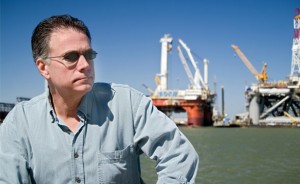Mike Doyle Interviewed Regarding March 24, 2014 Oil Spill in the Port of Houston
Local 2 (KPRC-TV) interviewed attorney Mike Doyle of Doyle Dennis Avery LLP about the oil spill that occurred on Monday, March 24, 2014. in the Port of Houston.
According to the report, the accident happened when the Miss Susan, a tow vessel, collided with a barge that was carrying 924,000 gallons of fuel oil. The Miss Susan was moving from Texas City to the Bolivar peninsula when the collision occurred. The US Coast Guard believes that at least 160,000 gallons of the fuel oil spilled into the Houston Ship Channel. The six crewmembers aboard the Miss Susan have been accounted for, though two were sent to the hospital for hydrogen sulfide exposure.
Both ships were owned by Kirby Inland Marine. Investigators are currently trying to figure out exactly what happened to cause the tow vessel and the barge to collide. Data collection is key, according to Mr. Doyle. “Depending on how they’re equipped… there may be black box information that you could look at. There’s also radar information. The port has its own systems for monitoring vessels in the port, and they’ll try to grab that data, as well as interviewing people involved.”
This is not the first time the Miss Susan has been involved in an incident. She had been involved in two other collisions and 11 incidents in the past. It is unknown whether the same captain in these incidents was piloting the Miss Susan at the time of the wreck. Investigators are also looking into the possibility of weather-related circumstances, as there was fog in the channel at the time of the wreck.
Cleanup crews are already at work to sop up the oil, but it is clear that this is a major spill that will require extensive investigation and a long court battle. Doyle Dennis Avery LLP has experience in maritime accident law, and has fought companies like Kirby Inland Marine and others in the past to compensate workers for their injuries. If you have been injured while working on a vessel, give our offices a call for a free consultation.



